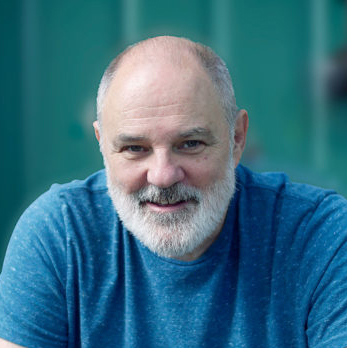How do you find time to write?
That’s a question I’m often asked, not because I’m the most productive writer in the world.
I am not.
But the question misses the mark. It’s not about finding time to write, but making it. For inspiration, here are some ways that busy people make time to pursue writing dreams that may lie outside their day jobs or family lives.
Best-selling author Scott Turow had a demanding day job — as a federal prosecutor in Chicago — when he wrote the first 120 pages of his first novel, “Presumed Innocent.”
“I used to write on the morning commuter train,” he told an interviewer in 1986. “It was sometimes no more than a paragraph a day, but it kept the candle burning.”
Anne Tyler sat down to write her early novels in her Baltimore home after her children went to school.
This wonderful 1977 profile captures Tyler’s juggling act.
In the 19th century, Anthony Trollope wrote novels in the morning before he set off to work from the English countryside to his job as a postal official in London. His discipline was astounding.
“I finished on Thursday the novel I was writing, and on Friday I began
another,” Trollope wrote in 1880. “Nothing really frightens me but the idea of enforced idleness.
As long as I can write books even though they be not published, I think
I can be happy.”
Influenced by Scott Turow’s commuter approach, I adopted it on my morning Metro ride from suburban Maryland to the National Press Building in Washington, D.C. The early ’90s was the busiest time in my life. I had a demanding job as a Washington correspondent, and at home, my wife, Kathy, and I had a toddler and infant twins. I suggested Kathy and I wear tee-shirts emblazoned with the title of a Warren Zevon song: “I’ll Sleep When I’m Dead.”
Instead of trying to make up zzzzz’s on the subway, I was able over a period of several weeks to draft and revise a short story about a Mom forced to take over as coach of her daughter’s Little League team. “Calling the Shots” was published in 1998 in Elysian Fields Quarterly, a literary baseball journal. (Pause here for laughter and a prosal retort from those who dismiss me as sports-challenged.)
These days, the best time for my extra-curricular writing is first thing in the morning, before I check e-mail or surf the Web. I allow myself one distraction: create an electronic stickie note where I record the writing task at hand. Today’s was “Learning objectives for chapter 11.” That completed, I could turn to this piece, due today for Poynter Online.
By the evening, I’m usually too tired for anything but vegging out. That was the case years ago in Washington. I never had the energy to look at the short story that captured my attention that morning.
Still, brief daily sessions, described in a post last week, can make it possible to write past fatigue. Last year, Kathy and I outlined and drafted our second Christmas serial novel, “Mystery @ Elf Camp,” in 15-30 minute stretches. The key was lowering our standards, which enabled us to talk out the story, comment or question its direction as we went along.
Writing regularly, even if only a single paragraph at a time, develops critical mass over time.
So what are ways to make time to write?
- Manage your time. Examine your schedule, daily, weekly, even monthly, for pockets of time and energy. Wake up 15 minutes earlier. Take a bite out of lunch.
- Use the mass-transit or incremental approach. You don’t climb a mountain with one step, but with many.
- Decide what matters — watching, for the tenth time, the “Soup Nazi” Seinfeld episode, or taking the half-hour to write.
- Exercise. Even a brisk 15-minute walk can pay off with relaxation-producing endorphins and an energy boost.
- Lower your expectations. Even large blocks of time can prove useless if you agonize over the quality of what you’re producing. Every time you realize your fingers are poised over the keyboard, start banging away. It’s called freewriting and is best done in timed bursts, anywhere from a few minutes to, my preference, a screenful.
Finally, I like to remember these words from Robert B. Parker, master of detective fiction.
“There is no one right way. Each of us finds a way that works for him. But there is a wrong way. The wrong way is to finish your writing day with no more words on paper than when you began. Writers write.”
How do you make time to write?






